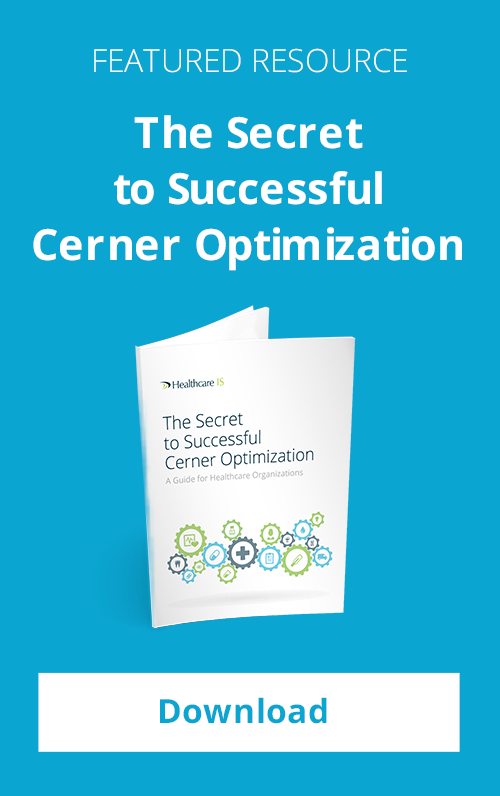Technology has revolutionized the way healthcare is delivered, which has paved the way for the fields such as healthcare IT and health informatics to be practiced, studied, and implemented.
These two fields are often used interchangeably but are distinct in their focus and scope. Understanding the differences between the two is essential to appreciating how patient experiences and treatments continually evolve for the good.
As our team at Healthcare IS helps healthcare organizations fill important roles, we’ve felt the need to define these two topics from our unique perspective.
In this blog, we'll explore the key differences between healthcare IT and health informatics and their roles in the healthcare ecosystem. We'll also discuss how they work together to improve better treatments and experiences that every organization seeks to provide for its patients.
What is Healthcare IT?
Healthcare IT, or healthcare information technology, refers to the use of technology in the health industry. This can include hardware, software, and networks used to manage, store, and share critical information. Healthcare IT services can be used in a variety of ways, including:
Electronic Health Records (EHRs): Digital versions of a patient's medical history. They allow healthcare providers to access patients' health data in real-time while painting a complete picture of their health status.
Healthcare Information Systems and Applications: These are software applications designed to manage and store healthcare information. These systems can include billing, scheduling, and other streamlined administrative tasks.
Telehealth: Telehealth refers to using technology to provide healthcare services remotely. This can include video conferencing with a provider, remote patient health status monitoring, and more.
For an example of healthcare IT at work, let's say a patient with a chronic illness and other medical issues needs multiple providers and specialists, such as a primary care physician, a specialist relating to their illness, and a physical therapist.
Without efficient systems in place, it could be difficult for all of these providers to share information and coordinate care effectively.
However, if the patient's healthcare providers use an integrated healthcare information system, they can share patient information such as diagnoses, medications, test results, and treatment plans in real time. This not only improves the quality of care but can also prevent medical errors and reduce the likelihood of duplicative or unnecessary tests or treatments.
Another example of streamlined healthcare IT systems at work includes patients accessing their health information using a patient portal, which allows them to view their medical records, schedule appointments, and communicate with their providers more efficiently. This type of system empowers patients to take an active role in their own care and make more informed decisions about their health.
Needless to say, healthcare IT services are crucial to delivering outcomes, as they allow providers to access patient data quickly and efficiently, leading to better patient experiences and treatments.
What is Health Informatics?
According to the National Library of Medicine, more health information is available today for patients, providers, and researchers than ever before. With so much information available to us, we need to ensure that processes are in place to help us understand this information in way that helps people.
This is where health informatics comes in.
Health informatics refers to process of connecting information that comes from nurses, doctors, clinicians, and data analysts that empower healthcare providers to better care their patients and perform their responsibilities efficiently.
Informatics professionals work with the data to identify trends, patterns, and other insights that can be used to improve these types of experiences. This can include analyzing EHRs, information systems, and other sources previously discussed.
Let's say a public health organization is conducting a study on the prevalence of a specific disease in a particular community. In this case, informatics systems can analyze and interpret large amounts of health data to identify patterns and trends in the disease's occurrence.
The organization could gather health data from various sources, such as hospital records, electronic health records, insurance claims, and survey data. They could then use data analytics techniques to analyze the data and identify correlations between the disease and various demographic factors such as age, gender, race, and socio-economic status.
Using informatics, the public health organization could also identify the factors contributing to the disease's prevalence and develop targeted interventions and policies to prevent and manage the disease more effectively. For example, they could develop educational programs to raise awareness of the illness or allocate resources to specific areas with a high disease incidence.
Informatics tools and processes enable organizations and public health agencies to make data-driven decisions and improve health outcomes for individuals and communities.
Healthcare IT vs. Health Informatics: What's the Difference?
While healthcare IT and health informatics are both focused on the use of technology, they are different pieces of the puzzle.
Healthcare IT focuses on managing, storing, and providing easy access to health information, while informatics focuses on how that information is used to create better solutions for patients and medical staff.
As one piece of the puzzle provides streamlined systems and ways to gather important health information, the other offers analysis and smooth processes for clinical data to inform decision-making.
Hire Value in Healthcare IT and Informatics
As these two fields of practice and study become increasingly vital to health systems in the United States, organizations need to be able to hire reliable expertise.
That's how we're able to help.
At Healthcare IS, we specialize in "hire value," meaning that we're experts in attracting subject-matter experts within the realms of healthcare IT and informatics. Contact us today if you're ready to recruit top talent to transform your organization.


Comments